
China's New COVID-19 Cases Drop to Double-Digit Figures Since January 21
After the whole country's arduous efforts, a positive trend has emerged, signaling progress in China's COVID-19 fight. Chinese mainland reported 99 new COVID-19 cases Friday, the first double digits since Jan. 21 and it is also the first time for Hubei Province to see a daily increase of less than 100 cases since January 23.
WUHAN, March 7 (Xinhua) — The number of new COVID-19 cases in China dropped to double-digit figures Friday for the first time since Jan. 21, according to China's health authority Saturday.
The National Health Commission reported 99 newly confirmed cases of novel coronavirus infection, including 74 in Hubei Province, and 28 deaths Friday on the Chinese mainland. The deaths were all reported in central China's Hubei Province.
The new cases included 24 imported infections -- 17 in Gansu Province, three in Beijing, three in Shanghai and one in Guangdong Province.
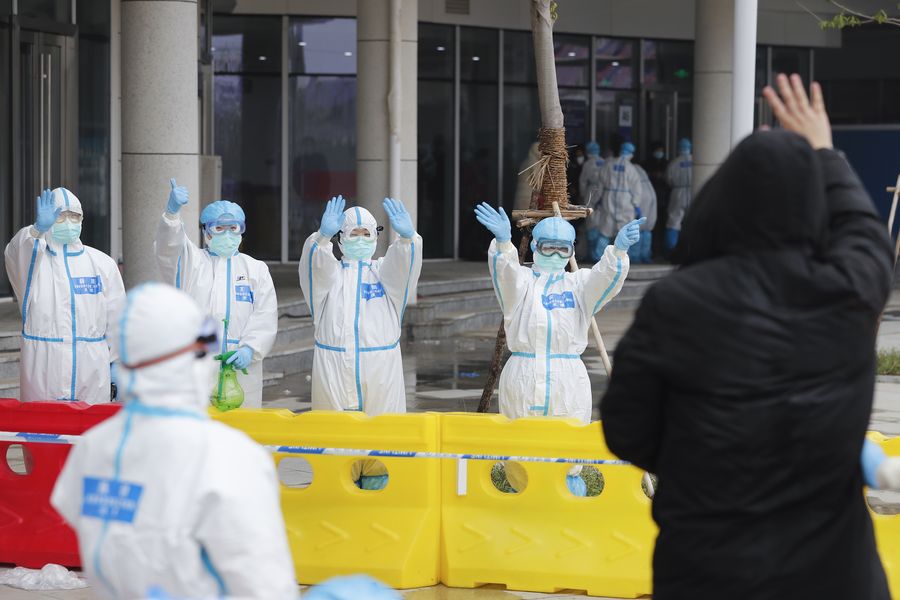 |
| A recovered patient (R) waves to medical staff of a temporary hospital, which applies traditional Chinese medicine (TCM) treatment to patients, in Wuhan, central China's Hubei Province, February 26, 2020. [Xinhua] |
It is also the first time for Hubei Province to see a daily increase of less than 100 cases since January 23.
Although the rapid spread of infections has been contained in Wuhan, the city and Hubei Province still face an arduous task in epidemic prevention and control, said Ding Xiangyang, Deputy Secretary-General of the State Council, the nation's cabinet, Friday at a press conference.
The mainland reported a daily increase of 77 coronavirus cases on January 20, followed by 149 new cases on Jan. 21. Infections were first officially reported in Wuhan, the epicenter of the outbreak, in late December. Daily increases peaked on February 12, reaching 15,152 nationwide.
 |
| A staff member arranges masks at a medical equipment company in Suining, southwest China's Sichuan Province, March 6, 2020. [Xinhua] |
Since late January, the country has adopted comprehensive and stringent measures to contain the spread, such as putting the city of Wuhan in lockdown and implementing strict traffic control measures in other cities in Hubei, the mobilization of more than 40,000 medics from across the country to aid Hubei, and the building or transforming of dozens of temporary hospitals to leave no COVID-19 patient unattended.
The production of protective medical materials has been rapidly improved by resuming production and increasing capacity, turning severe shortages into sufficient stock in Hubei, said Wang Jiangping, Vice Minister of Industry and Information Technology.
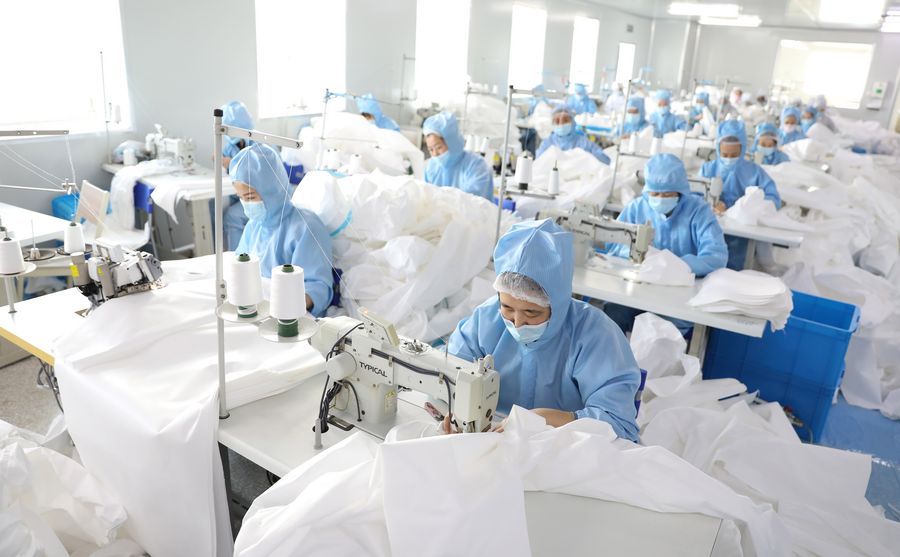 |
|
Workers make protective suits at a medical technology company in Anshan City, northeast China's Liaoning Province, March 2, 2020. [Xinhua] |
Key medicines and medical equipment have also been guaranteed and the test kits in stock can fully meet the needs of Hubei and other parts of the country, according to the official.
Chinese scientists are racing to carry out scientific and technological breakthroughs in epidemic prevention and control by adopting five technological approaches, Ding said. Some vaccines against COVID-19 are expected to enter clinical trials by mid-April or even earlier.
The country has adopted treatment methods that combine traditional Chinese medicine (TCM) and Western medicine to cure COVID-19 patients. TCM treatment has yielded good outcomes, preventing patients with mild symptoms from becoming severely ill, Ding said.
 |
| A nurse prepares to treat a patient with traditional Chinese medicine (TCM) therapies at a temporary hospital in Jiangxia District in Wuhan, central China's Hubei Province, February 25, 2020. [Xinhua] |
After the whole country's arduous efforts, a positive trend has emerged as the epidemic prevention and control situation has seen steady improvement and the resumption of work and return to ordinary life has been accelerating. About two-thirds of the 31 provincial-level regions have lowered their emergency response from the top level.
The overall confirmed cases on the mainland reached 80,651 by the end of Friday, including 22,177 patients who were still being treated, 55,404 patients who had been discharged after recovery, and 3,070 people who had died of the disease.
For Wuhan, the task of containing the epidemic remains arduous and onerous, allowing no relaxation in the containment efforts.
Wuhan still accounts for a high proportion of the country's newly confirmed cases and suspected cases each day. The city faces high pressure in the treatment of the remaining hospitalized patients, according to Ding.
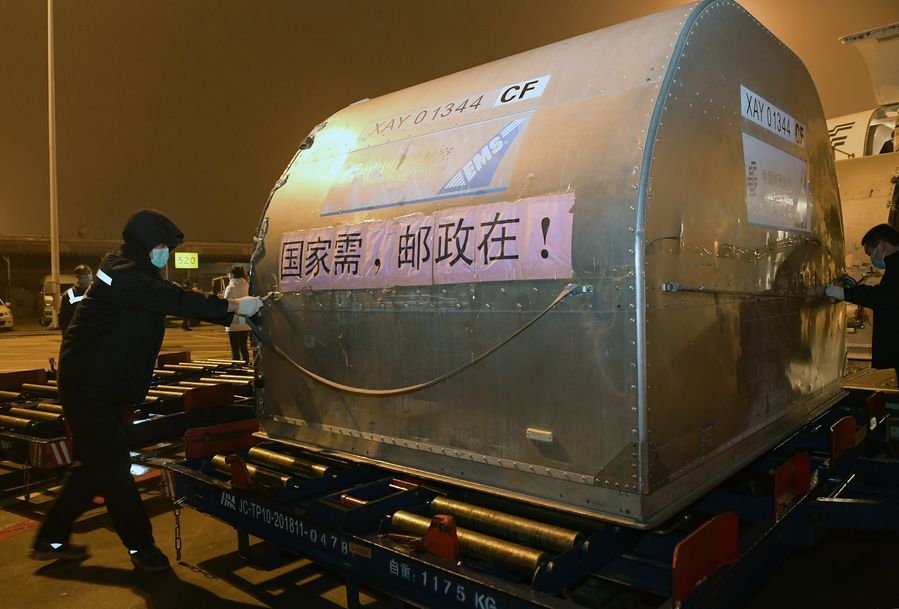 |
| Staff members unload container for extracorporeal membrane oxygenation (ECMO) equipment from plane at the Wuhan Tianhe International Airport in Wuhan, central China's Hubei Province, February 27, 2020. [Xinhua] |
As China secures substantial progress in the control of COVID-19, the highly infectious disease is plaguing several other countries that have seen a rapid rise in the number of infections. The Chinese mainland had seen a total of 60 imported COVID-19 cases as of Friday.
On Thursday, the Ministry of Transport called for greater prevention and control of the novel coronavirus outbreak targeting citizens returning from overseas, urging that special transport services should be properly arranged.
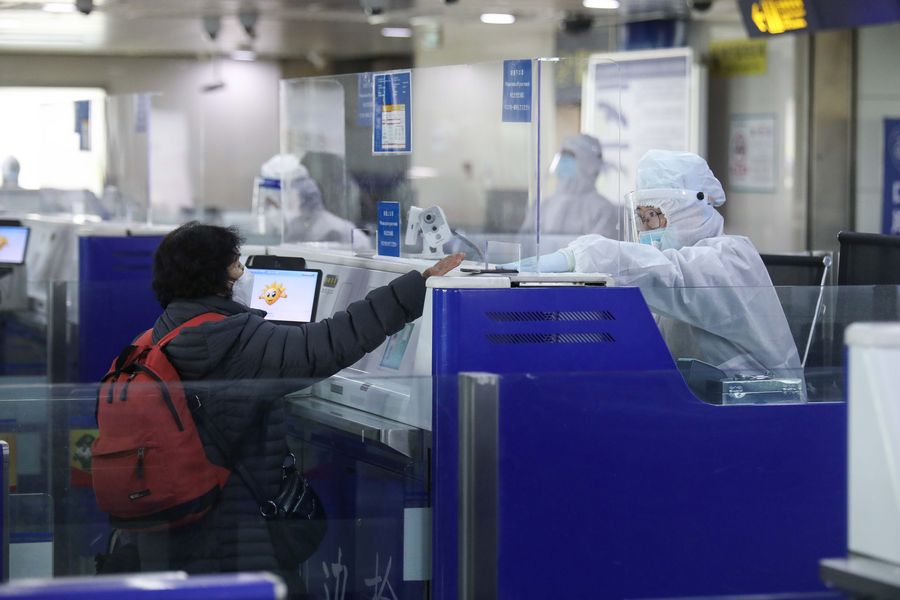 |
| A border inspection police officer gives back documents to a passenger at the Qingdao Liuting International Airport in Qingdao, east China's Shandong Province, March 5, 2020. [Xinhua] |
Provincial-level transport departments were instructed to put in place information sharing and coordinated mechanisms, which will enable local governments to keep track of information of Chinese citizens returning from overseas, especially places with severe outbreaks, the ministry said.
"We should not be blindly optimistic and the prevention and control work must continue," warned Liang Wannian, Head of the Chinese expert panel on the outbreak response and disposal, recently.
(Source: Xinhua)
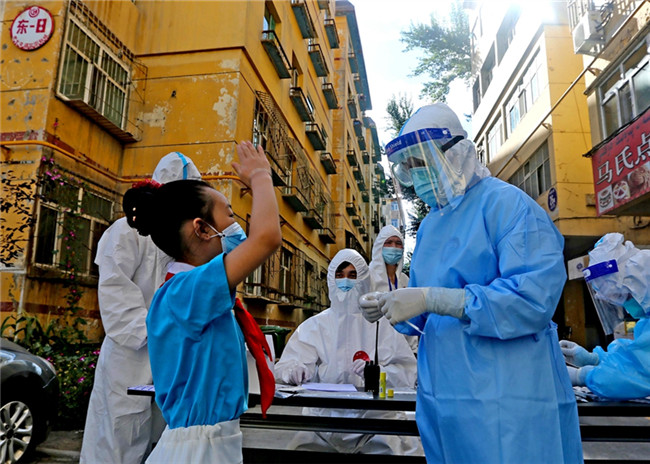 Women Medics in NW China's Xinjiang Contribute to COVID-19 Epidemic Containment
Women Medics in NW China's Xinjiang Contribute to COVID-19 Epidemic Containment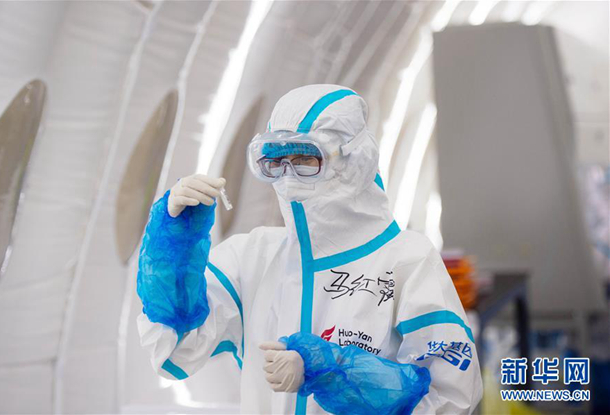 Women CPC Members on Front Line of Anti-COVID-19 Battle in Beijing
Women CPC Members on Front Line of Anti-COVID-19 Battle in Beijing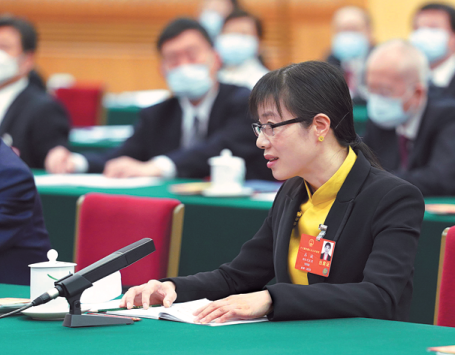 Deputy Recalls Role in COVID-19 Fight
Deputy Recalls Role in COVID-19 Fight- Woman Epidemiological Researchers Race Against the Clock on Front Line
 Pic Story of Nurse Who Aided COVID-19 Fight in Wuhan
Pic Story of Nurse Who Aided COVID-19 Fight in Wuhan Volunteer Provides Milk Tea, Back up Anti-Epidemic Workers in NE China
Volunteer Provides Milk Tea, Back up Anti-Epidemic Workers in NE China

 京公网安备 11010102004314号
京公网安备 11010102004314号